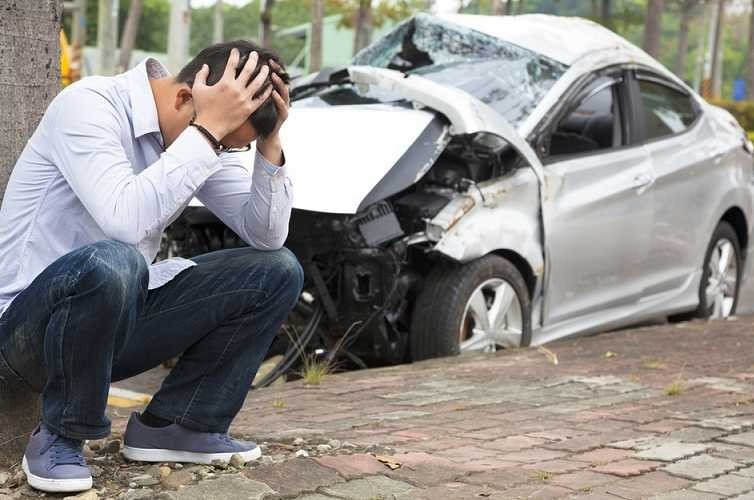How to Cope with Post-Collision Emotional Trauma
 The U.S. Department of Transportation reports that more than six million automobile collisions occur in the United States every year. So, if you’ve just been involved in a car accident, don’t over think it and don’t stress, because you’re surely not alone. Most people experience a car accident at some point in their lives, and while we all know to call the police, the tow company and the insurance company, not many of us are willing to openly talk about the emotional trauma.
The U.S. Department of Transportation reports that more than six million automobile collisions occur in the United States every year. So, if you’ve just been involved in a car accident, don’t over think it and don’t stress, because you’re surely not alone. Most people experience a car accident at some point in their lives, and while we all know to call the police, the tow company and the insurance company, not many of us are willing to openly talk about the emotional trauma.
In almost every accident involving at least two vehicles there are two very different emotions. The person causing the collision is obviously embarrassed and the other person is probably a little upset. In a situation in which both parties are at fault, everyone is mad and if it’s a serious accident, there is also a whole new level of stress involved.
Dealing with the aftermath of a car accident is similar to someone grieving after losing a loved one. You haven’t lost a human being, but you are no longer with your vehicle…at least for a little while.
If you’re having trouble with emotions after a collision, here’s some coping strategies to help you process your feelings and hopefully manage your emotions, brought to you by all of us at Pacific Elite Collision Centers Downey West.
Understand that Collisions may be Unavoidable

Many drivers who are involved in a car wreck will blame themselves for the accident—even if it wasn’t their fault. If you were driving at the time of the wreck, there may not be anything that you could’ve done to avoid it. You cannot control the actions of other drivers, environmental conditions and countless other variables.
Buckling up, staying alert and abiding by all road rules is all that you can do behind the wheel. Even so, accidents still happen. The best attitude to adopt after a collision is whew, it’s over. It happened and now it’s done. The problem is most people ruminate over the accident and replay in their brains over and over again. In those instances, the best thing to do is tell yourself that you can’t do anything more to alter the past, so move forward in a positive direction and put it behind you.
Talk to Somebody about the Wreck
If you are experiencing depression, uncertainty, angst, insomnia, mood swings, or other negative symptoms as a result of the accident, keeping your feelings to yourself will only intensify them. A good way to release your stress is through communication. Whether it’s talking to a family member, a friend, your doctor or a therapist, venting is a very healthy way to manage your emotions. Some people choose to talk to a psychiatrist about post-collision trauma and that’s okay. Seeking out the help of a trained and licensed professional is a great idea, because they’ve been there before many times and will normally give you objective answers.

Commit to a Healthy Lifestyle
Vehicular accidents can cause physical and psychological harm to the body. Some coping strategies include the basics of good living--eat well, exercise, and get a sufficient amount of sleep each night. Overeating, sleeping too much, avoiding contact with people and staying in your house for extended periods of time are the symptoms of depression and if they continue, you should get advice and help if it’s deemed necessary.
Keep Busy (Distract Yourself)
Try to stay busy by picking up a new hobby. Reading a book, playing sports, gardening, or a number of other activities can add happiness to your life while keeping your mind off the accident. By staying distracted, you will be able to distance yourself from the stress and anxiety associated with a vehicular collision.
If you can follow some of these suggestions, you will be able to get past the pitfalls associated with post-accident trauma and continue on with your daily life. The main thing is to tell yourself that accidents happen and that’s why they call them accidents. Don’t beat yourself up over a collision, because they unfortunately are a part of life.















 The U.S. Department of Transportation reports that more than six million automobile collisions occur in the United States every year. So, if you’ve just been involved in a car accident, don’t over think it and don’t stress, because you’re surely not alone. Most people experience a car accident at some point in their lives, and while we all know to call the police, the tow company and the insurance company, not many of us are willing to openly talk about the emotional trauma.
The U.S. Department of Transportation reports that more than six million automobile collisions occur in the United States every year. So, if you’ve just been involved in a car accident, don’t over think it and don’t stress, because you’re surely not alone. Most people experience a car accident at some point in their lives, and while we all know to call the police, the tow company and the insurance company, not many of us are willing to openly talk about the emotional trauma.

Social